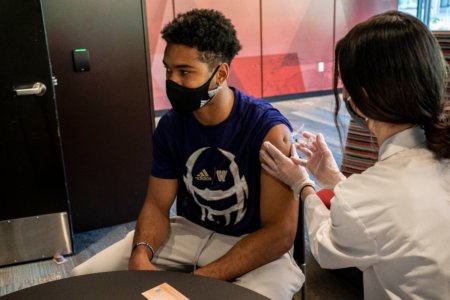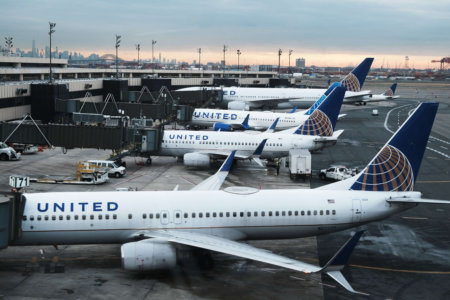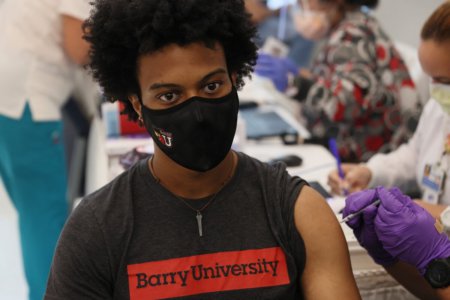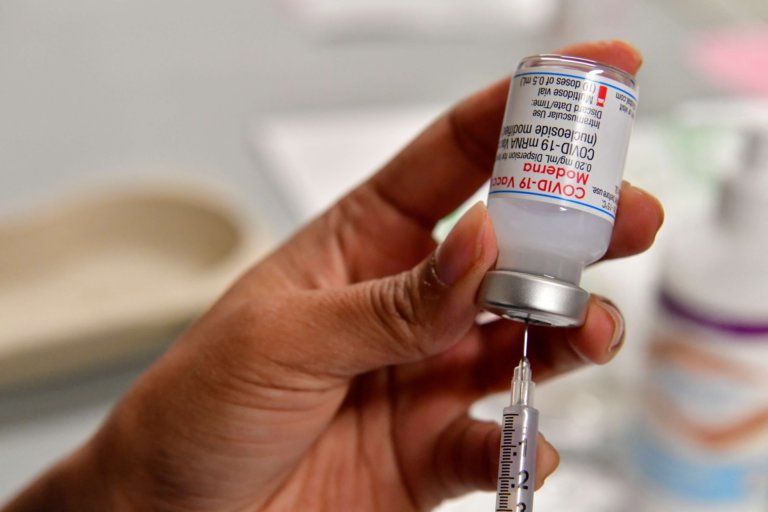
As we progress into a new wave of COVID-19, governments are emphasising one thing: that people get their booster vaccines.
In most countries, vaccines are not a solid requirement. However, governments and health officials all over the world have strongly urged people to get vaccinated against the disease. Many countries are making vaccines compulsory for international travel, turning away travellers who refuse to comply.
With the emergence of the new Omicron variant, this is now translating into calls for people to get their booster shots. New studies have shown how getting booster shots can help protect households from Omicron. On top of that, it has been found that three doses of the Pfizer-BioNTech vaccine can neutralise the variant.
Due to this, governments all over the world are pushing their countries to get triple vaccinated. In the US, the Centres for Disease Control and Prevention (CDC) has recommended that all double vaccinated adults get their booster shots.
So what does this mean for university students?
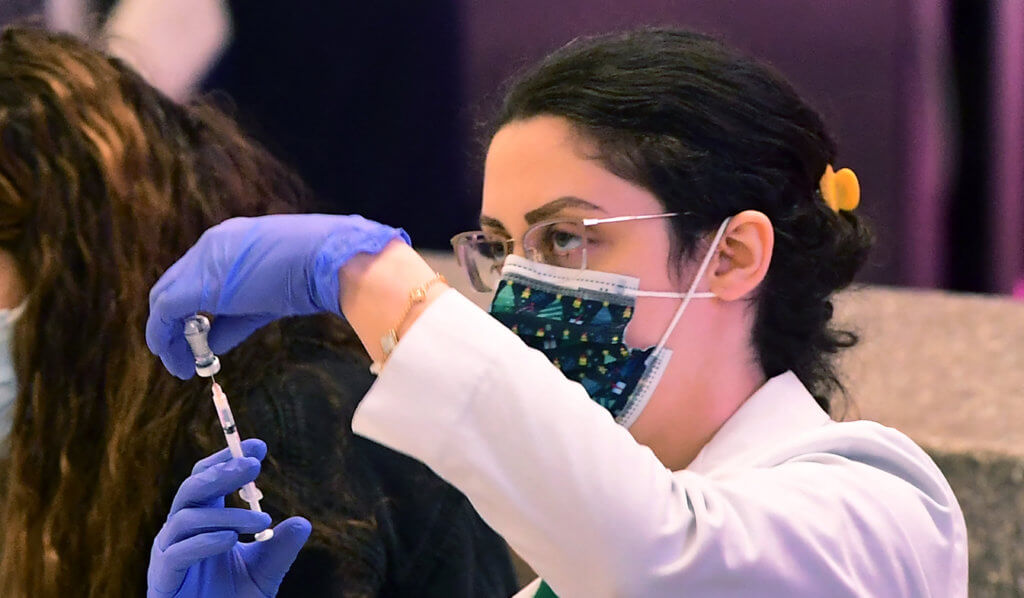
New research has shown that booster vaccines help protect communities from Omicron. Source: Frederic J. Brown/AFP
Most US universities require students to be fully vaccinated
Mandatory vaccines are not a new concept, but this is perhaps the first time in history that universities have so widely implemented this rule on their respective student communities.
At the moment, over 1,000 universities across the US require their students to be vaccinated. Of these, all of the nation’s top 25 universities are making vaccines compulsory to attend classes. This includes Harvard, MIT, Cornell, Stanford, and more.
To attend these universities, students must submit proof of their vaccination status unless they have medical or religious exemptions. Cornell University, for example, states that students who do not comply with their vaccination guidelines will be disenrolled by a certain date. Princeton University has made a similar announcement to its student community.
Some universities have now extended this to booster shots, making it a requirement for students to be triple vaccinated before they’re allowed on campus. As of December 21, this includes:
- Brown University
- Carnegie Mellon University
- Columbia University
- Dartmouth College
- Georgetown University
- Harvard University
- Massachusetts Institute of Technology (MIT)
- New York University
- Syracuse University
- University of Delaware
- University of Michigan
- University of Oregon
- Yale University
The full list of US universities currently requiring mandatory booster vaccines can be found here.
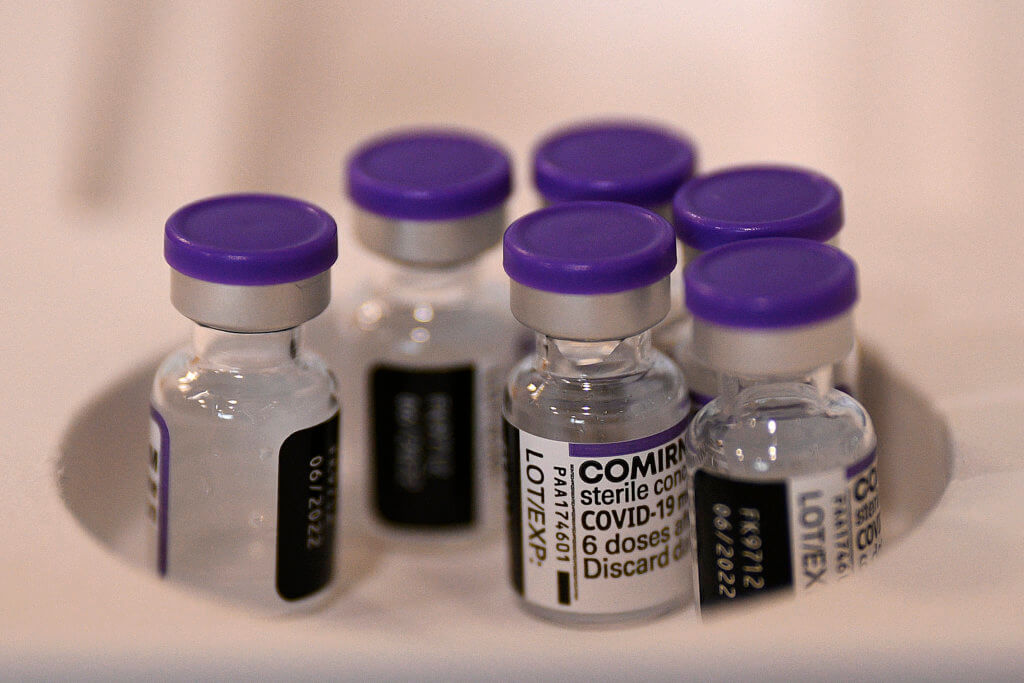
Some US universities are disenrolling students who refuse to get vaccinated. Source: Oli Scarff/AFP
Do any US universities allow non-vaccinated students on campus?
Most public US universities are not making vaccines mandatory for students to attend classes. Instead, they’re encouraging students towards getting vaccinated through a number of methods, including working through misconceptions and introducing prizes and raffles.
Montana State University, for example, has introduced a Vaccination Sweepstakes. Through this, all vaccinated students who enter get the chance to win US$5,000 financial assistance awards, a season ski pass, a US$500 airline voucher, and other valuable prizes.
The University of Connecticut officially requires that students be vaccinated, but has been lenient with those who refuse to do so. Over 800 students were exempted on this front, no matter the reason.
“We would be very sensitive to the fact that there is misinformation out there, that we might need to educate the student,” says the university’s interim president, Dr. Andrew Agwunobi. “So it’s about trying to work with that student to understand what their concerns are, trying to get them to the right place in terms of vaccinations.”

You can get your booster vaccine through your university or a nearby vaccine provider. Source: Ethan Miller/AFP
Where can I get a booster vaccine?
It’s relatively simple for students in US universities to get their booster vaccines. Today, it’s easier than ever for universities to set up vaccine drives on-campus, and many are opting to encourage students to get vaccinated through this method.
The University of California, Berkeley (UC Berkeley), for example, will host vaccine clinics in January for all students and staff. Montana State University has the Moderna vaccine available on campus through its health partners. Johns Hopkins University has also established several walk-in clinics across Baltimore and Maryland, making it easy for students to get vaccinated.
Off-campus, students can locate their nearest vaccine provider and schedule their appointments through the Vaccines.gov portal. They then need to complete the two forms sent to their registered email and provide proof of age to ensure eligibility for the vaccine.
Vaccines in the US are free for everyone, regardless of insurance status. International students must already be fully vaccinated before entering the US.








